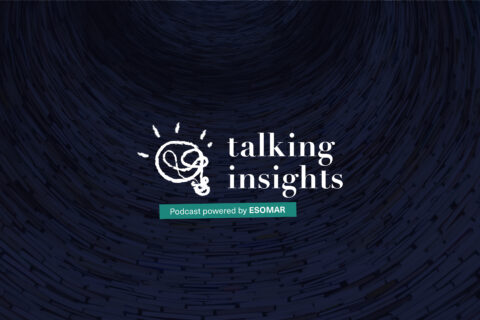Like most, my plans changed pretty abruptly mid-way through March. I was going to spend some time in Amsterdam delivering a workshop for ESOMAR on the qual side of social media data analysis. Thankfully, what’s now impossible off-line, has been made possible online, thanks to the hard work of ESOMAR’s events team.
I’m actually quite pleased that the Summer Academy has moved online as Virtual Academy (although, it would have been great to see Amsterdam again).
This new format opens up the important work of the Academy to more people. It’s in smaller chunks so is easier to weave into busy days. All mastercalsses are available on demand so you can go back and watch them again. You can also interact with some of the speakers and participants before, during and long after the event.
It’s a chance to learn and a chance to meet.
I’m really looking forward to delivering our masterclass. Social data has so much to teach us about people. What they’re doing, how they’re feeling and what’s important to them.
The promise of social has always been this new consumer perspective, something we can’t see using more traditional methods. Unfortunately, many of the listening tools we have right now give us data, not insight. During the masterclass we’ll be showing you how to go deeper than this – into the qual side of social data. We’ll show you what’s possible, how to go about it and the impact it can bring.
The thing with Market Research
I can’t help but get a bit frustrated with traditional Market Research. I think it’s all a bit too controlling.
It’s obsessed with asking people what they think they did and what they think they felt. It demands that they imagine what they might do tomorrow. It’s all very speculative. It asks all the questions. And, a lot of the time, it gives the answers to choose from.
Stimulus response. Stimulus response.
But it’s worked, to a point and has been best we’ve had. Up until now.
Now some of the constraints that keep us tied to this stimulus-response model are being broken down. We have more choice. We have access to richer datasets based on observation, not examination. This is important. Mostly, because people don’t talk to researchers the way they talk to each other.
If we only use the old techniques, we limit ourselves. If our competitors have access to better insights than us, we’re at a disadvantage.
Social potential
If people don’t talk to researchers the way they talk to each other, how can we tap into these more natural conversations? Social media is where this happens. It’s where they’re free to say what they want, where they want, and how they want (even if sometimes, we really wish they wouldn’t).
This is what makes it so special. It’s what creates the potential for insight.
It’s raw, unfiltered and spontaneous. It’s millions of captured moments, parts of life caught and preserved in social data.
It shows you what’s important to people in these moments. It captures the spirit, the language, the depth, and the emotion. It shows how different online communities form and the social norms that bind them together.
Social data is unique in that it helps understanding people better, while at the same time it shapes the opinions of those who come across it. It doesn’t matter if you learn from it or not, the content is out there, influencing those who read it.
That’s why it shouldn’t be ignored.
Social evolution
For the last 10 years, we’ve been at stage one with social data.
Social media itself has come of age – gaining undisputed reach and power across all walks of life. Boardrooms demand to know what’s happening. It’s deciding elections and making or breaking careers.
From an insight perspective, we’re at the beginning. The tools we use to listen to these social conversations have set the pace and expectations for how it can be used. This needs to change.
We’re ready for the next stage.
Social listening alone is rarely insightful. The tools from the platforms simply lack the power to deliver more than superficial data. It’s not insight, it’s fieldwork. Underneath the pretty dashboards is just data, tables and x-tabs.
And like traditional fieldwork, it needs developing, building, interrogating – proper analysis, to unlock its potential.
Social masterclass
Our session at the Virtual Academy will give people the inspiration and tools they need to unlock the value of social data. Attendees will get to see what’s possible, the impact it can bring, and how to get started. We’ll show how it can be used to inform strategy, to improve the customer experience and to help you engage with consumers more effectively.
I look forward to seeing you all there.
Virtual Academy Masterclass: ‘Social listening for insights – understanding the meaning in social data’ will be held in 3 sessions: 13, 14 and 15 July. Make sure you don’t miss it and go to this page to register!


